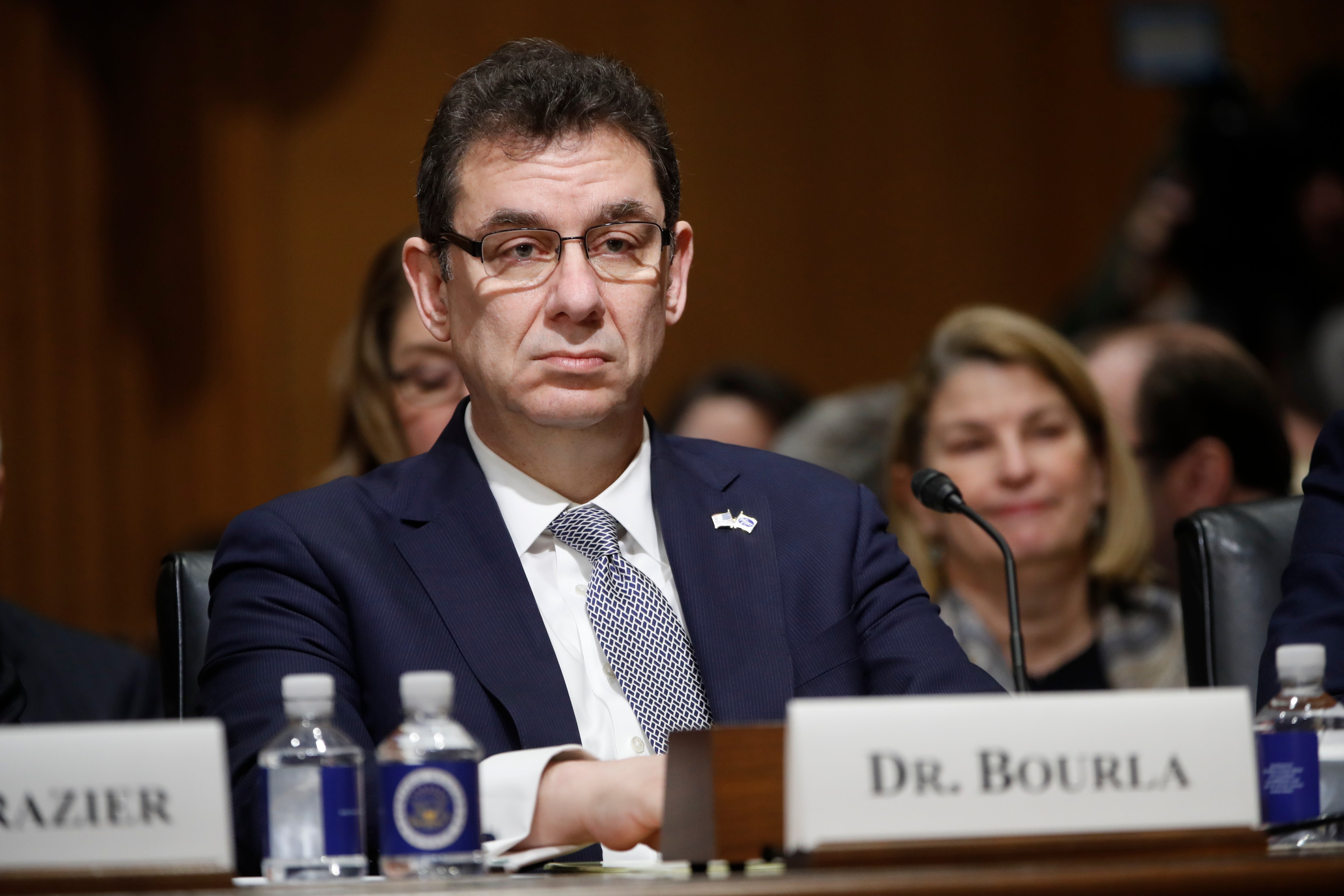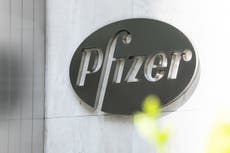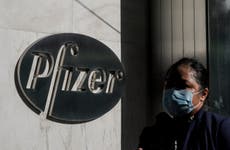Did Pfizer really not get any public money to develop its successful coronavirus vaccine?
Would big profits for the US pharmaceutical giant be the free market in action? Or would this represent socially unacceptable pandemic profiteering? Ben Chu considers the options


The news from Pfizer and BioNTech that their coronavirus vaccine has proved broadly effective in trials added hundreds of billions of dollars to global stock markets on Monday as investors hopes surged that this medical breakthrough would enable economies to return to normal relatively soon.
The share price of travel companies, leisure firms and real estate companies all jumped.
So too, of course, did the stock prices of America’s Pfizer and Germany’s BioNTech, with the former putting on $15bn (£11.3bn) of value and the latter $4bn.
One of the reasons they were up so sharply is that Pfizer, unlike other pharma companies that are working on developing vaccines, has said it plans to make a profit on its project.
The US investment bank Morgan Stanley has estimated that the two companies could generate global sales of $13bn from their vaccine, which, even after subtracting production costs, would imply large profits.
So how should we think about this? Is this the free market in action, with these two companies set to be handsomely rewarded for their efforts and risky investments? Are such profits vital to encourage private investment in these kind of life-saving drugs in future?
Or would this represent socially unacceptable pandemic profiteering?
A key question is whether public money was invested in these companies’ vaccine work.
In the case of BioNTech the answer is clear cut. The Mainz-based firm, founded in 2008, received €375m (£334m) from the German government in September to speed up work on its vaccine and a €100m loan from the European Investment Bank in June for the same purpose.
In the case of Pfizer the answer is more complicated. Pfizer says it turned down the opportunity to participate in Operation Warp Speed – a US government initiative to fund private sector vaccine research and rapidly distribute the successful candidates.
Kathrin Jansen, a senior vice president and the head of vaccine research and development at Pfizer said: “We have never taken any money from the US government, or from anyone.”
And Pfizer chief executive Albert Bourla has suggested that the company invested $2bn of the company’s own money in the research.
“We made the early decision to begin clinical work and large-scale manufacturing at our own risk to ensure that product would be available immediately if our clinical trials prove successful,” he said.
This seems to be the basis for the argument that Pfizer is fully entitled to make large profits from its vaccine – it took a risk with its own money.
Yet some have questioned whether it’s true that Pfizer received no government support.
Though Pfizer took no government money for its research, it did sign a $1.95bn pre-order under Operation Warp Speed in July to deliver 100 million doses of vaccine to the US government if it proved successful.
Some analysts argue this order reduced the risk of Pfizer’s own investment.
Robert Wachter, chair of medicine at the University of California, told CNN: “One might argue that Pfizer, recognizing that they were working on the most important problem in the world, would have been willing to go full-steam ahead in any case, but I think the federal dollars (with the promise of far more) clearly tilted the playing field toward rapid action.”
And Peter Hotez, dean of the National School of Tropical Medicine at the Baylor College of Medicine, argues the financial incentives created by the state advance purchase commitment were “critical elements” in their work.
However, Enrico Bonadio, an expert in intellectual property law at City University in London, points out that the price per dose for the prospective Pfizer/BioNTech vaccine of $19.50 “is not exorbitant”.
“Having regard to the price and the fact they have used their own money my assessment is not negative,” he says.
In the end, even if one agrees that Pfizer itself did not receive state money, this vaccine was a collaborative effort with BioNTech, which clearly did, making the argument about whether the two companies would be justified in making big profits on these investments rather less clear cut than some have suggested.
“If the contribution of BioNTech [turns out to have] been the lion’s share a point could be made that Pfizer’s move is not very ethical. But it comes with a caveat: we don’t know,” says Mr Bonadio.
A related problem is that there has been secrecy around the deals that the US government has signed with pharmaceutical companies. The Warp Speed money has been distributed through an intermediary company, which reduces the public disclosure requirements.
And, unlike the US, the UK government has also not disclosed the prospective price-per-dose agreements struck with pharmaceutical companies for vaccine delivery, despite requests from The Independent to the Department for Business for this information.
In July the UK government also struck a pre-order deal with Pfizer/BioNTech for 30 million doses without disclosing agreed prices.
Without this kind of information its difficult to see how the claims from most pharma companies that they will sell their vaccines at a not-for-profit price can be checked and verified.
In a sense this is all speculative analysis. The Pfizer/BioNTech vaccine has not even been approved by regulators yet. If other vaccines prove effective and are also rolled out next year that competition would likely reduce their profits.
Yet some have already profited. Regulatory market filings on Wednesday showed that Mr Bourla, the Pfizer chief executive, sold stock worth $5.6m on Monday, the same day of the vaccine breakthrough announcement which sent the firm’s shares up by 8 per cent.



Join our commenting forum
Join thought-provoking conversations, follow other Independent readers and see their replies
Comments